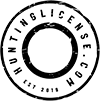
1. Pre-Hunt Preparation:
- Knowledge and Training:
- Familiarize yourself with the local hunting regulations and seasons.
- Take a hunter safety education course.
- Know the wildlife species in the area.
- Physical Fitness:
- Ensure you are in good physical shape to navigate rugged terrains.
- Check for any medical conditions and take necessary medications.
- Weather Forecast:
- Check the local weather forecast.
- Prepare for changing weather conditions.
2. Gear and Equipment:
- Firearm and Ammunition:
- Ensure the firearm is in good working condition.
- Use the correct ammunition for your firearm.
- Carry a firearm safety kit, including cleaning equipment.
- Personal Protective Equipment (PPE):
- Wear blaze orange or another high-visibility color.
- Use ear protection when shooting.
- Wear safety glasses.
- Navigation:
- Bring a GPS device and a traditional compass.
- Have a detailed map of the hunting area.
- Communication:
- Fully charged cell phone or two-way radio.
- Whistle or signal mirror for emergencies.
3. Hunting Practices:
- Know Your Target:
- Always be sure of your target and what is beyond it.
- Avoid shooting at sounds or movements.
- Firearm Safety:
- Keep the safety on until you are ready to shoot.
- Unload the firearm when not in use.
- Always point the muzzle in a safe direction.
- Tree Stand Safety:
- Check the tree stand’s stability before using it.
- Use a harness when in a tree stand.
- Never climb a tree with a loaded firearm.
4. Camping and Survival:
- Shelter:
- Bring a waterproof tent or tarp.
- Know how to build an emergency shelter.
- Fire:
- Carry waterproof matches or a fire starter kit.
- Know the safety precautions for building a campfire.
- Water and Food:
- Bring enough water or water purification tablets.
- Carry non-perishable food items.
5. Post-Hunt:
- Pack Out All Trash:
- Ensure you leave no trace behind.
- Game Handling:
- Properly field dress any harvested game.
- Store meat in a cool place.
- Notify Someone:
- Inform a trusted person when you’re leaving the hunting area and when you’ve safely returned.
6. General Safety:
- Stay Aware:
- Be aware of other hunters in the area.
- Avoid alcohol or any other impairing substances.
- Emergency Preparedness:
- Carry a basic first aid kit.
- Know the signs of hypothermia and heat exhaustion.
- Have a plan in case of emergencies.
This checklist provides a comprehensive overview of safety measures for hunting. However, depending on the specific location, species being hunted, and local regulations, there might be additional considerations to keep in mind.
